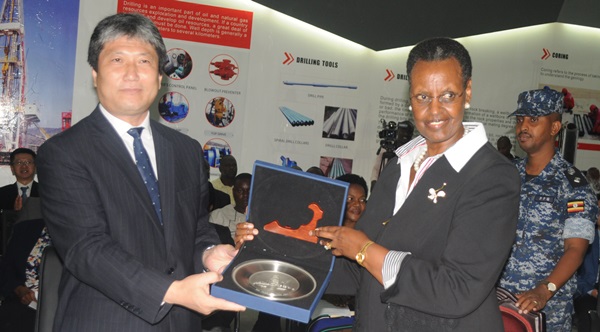Earlier on, the Government of Uganda through the ministry of finance filled in a loan request of up to $491.5 million (Shs1.8 trillion) from the International Monetary Fund. The fund later approved the loan which will be used for budget support through capitalizing the Uganda Development Bank (UDB) and stabilizing Uganda’s exchange rate. The loan is intended to service many projects intended to counter check the Covid-19 after effects majorly stabilizing Uganda’s economy.
On May 6, the executive board of the IMF in Washington DC approved the $491.5 million under its Rapid Credit Facility (RCF) saying the Ugandan economy is being severely hit by the Covid-19 pandemic and, in particular, such key sectors as services Tourism, Transport, Construction, Manufacturing and Agriculture.
While attending to a press interview, the executive director of research Bank of Uganda and currently acting Deputy Governor, Dr. Adam Mugume highlighted that Uganda has a financing gap of about $500 million (Shs1.9 trillion) for this fiscal year 2019/20 and another $800 million (Shs3 trillion) for the fiscal year 2020/21, that needs to be filled and this justifies the IMF $491.5 million loan earlier processed.
Commenting on how the government intends to spend and allocate the loan money, Dr Mugume said that $151 million (Shs573.8b) will go towards budget support, while $340 million (Shs1.3 trillion) will enable Bank of Uganda to stabilise the exchange rate and ensure that international reserve buffers remain strong.
“The $151 million will cater for health sector needs and the capitalisation of Uganda Development Bank to provide the long term and cheap loans for each manufacture importing Covid-19 related items and to commercial banks that would wish to borrow from UDB to provide cheap loans to the private sector involved in manufacturing agricultural activities,” he commented.
He further added that the central bank used to buy the US dollars from the market to build her reserves but currently, there are no imports and exports. That is why the IMF loan was highly needed.
Further commenting about the loan, Dr Mugume said, “The IMF loan on a concessional basis does not attract interest rate. The beauty about this IMF loan is it is cheap and for a specific need which is the Covid-19 and it is going to be paid for a long period of time with zero interest rate.”
Uganda, like many other low-income countries, is facing a tight fiscal policy space to manage the impact of COVID-19 in the economy and execute other public expenditure using the domestic revenue from the treasury. The IMF is providing emergency financial assistance and debt relief to member countries facing the economic impact of the Covid-19 pandemic.
About Guide2Uganda
Guide2Uganda (www.guide2uganda.ug) is the most comprehensive source of information about Uganda that exists on the web, with more content on Uganda and surrounding towns, attractions, museums and galleries than any other online guide that currently exists for Uganda as well as being a dynamic news and comprehensive events driven site with content being added daily.
According to WeFollow & Peer Index (whom both measure online influence) we are among the most influential online media organizations in Uganda. We were also awarded for ‘’Best Destination Website in Uganda’’ by Jumia Travel Uganda in the 2017-2018 Africa Travel Awards. If you are planning a visit to Uganda you can always reach us on; info@guide2uganda.ug




